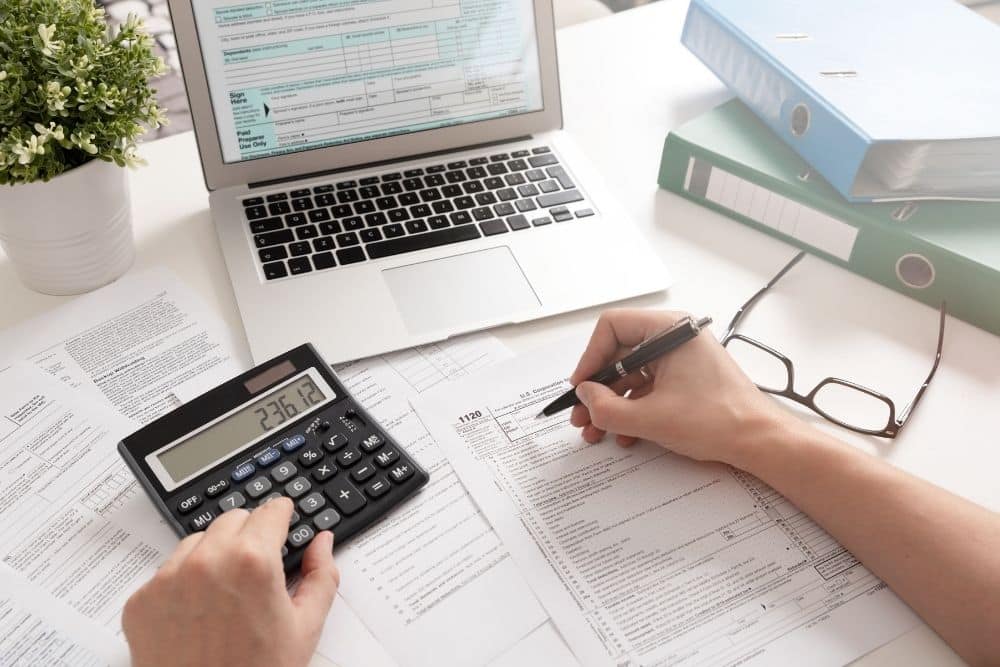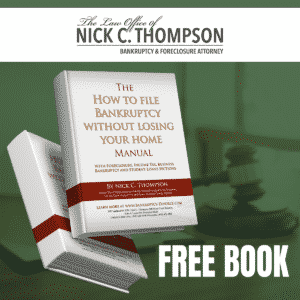Knowing about Chapter 13 and IRS tax returns and refunds in bankruptcy is important for filing successfully. The first thing you need to know is that the courts advise the Internal Revenue Service the moment you file bankruptcy. The IRS also advises the court and the trustee if you have not filed tax returns for the prior four years. They do this because Section 1308(a) requires the debtor to file all the tax returns for the four years before the date of the petition.
Additionally, while the IRS reports to the courts when you file a claim in Chapter 13, many state tax departments don’t. These are a few of the rules about tax returns you need to know when filing Chapter 13.
Chapter 13 Bankruptcy and IRS Tax Returns and Refunds
Moreover, it is a requirement that you file these returns and submit copies to the trustee, even if you don’t owe taxes. The only exception is when you earn below a certain income, and there is no requirement for filing a return.
Occasionally, even if you don’t file a return, the IRS might file a “substitute for return” for you estimating your income and not applying any deductions. These returns become official if you don’t object to them, but since you did not sign them, substitute returns do not apply towards the 10-year statute of limitations and three-year bankruptcy time limits. Those time limits allow you to discharge the tax debt when you file returns with your signature in a timely manner.
⎆ Timely submission of tax returns is a requirement for confirming Chapter 13.
A Chapter 13 plan cannot legally be confirmed until timely, signed tax returns are filed 11 U.S.C. § 1325(a)(9). Any case may be dismissed for not filing tax returns in a timely manner or for not keeping records. 11 U.S.C. § 1307(e). If all requirements of tax returns are not met by the date first set for the meeting of creditors, the trustee may hold open the meeting to allow additional time to file the return. 11 U.S.C. § 1308(b)(1).
If the debtor does not file tax returns for prior years, they are past due at the time of the petition. However, some trustees permit the debtor an additional 60 days after the date of the meeting of creditors within which to file the returns. But, others simply dismiss the case.
⎆ IRS tax extensions do not count in Chapter 13 Bankruptcy.
You must file returns even if you can get an extension under the IRS regulations. For example, you must file returns by April 15 or 60 days after the date of the 341 meeting. The trustee’s deadline for filing the tax returns does not change by any extension of time granted by the IRS for filing the returns. Then, the trustee files a motion to dismiss the case after the expiration of the deadlines in the absence of evidence in the record. Evidence can be an amended proof of claim or an affidavit of the debtor to show proper filing of all tax returns.
⎆ Chapter 13 and taxes for the Eastern and Western Districts of Kentucky.
Both districts require the debtor to use his best efforts to repay his debts. The Eastern district requires the debtor to live by a strict budget which turns over all unnecessary and disposable income.
⎆ Eastern District of Kentucky • Lexington
The Eastern District looks at tax refunds and inheritances at the time of confirmation. The Trustee does not require you to turn over refunds if your history of refunds is normally small. On the other hand, if every year you get a large income tax refund the trustee will want you to turn over the refund annually.
⎆ Western District of Kentucky • Louisville
The Western District requires your refund to be turned over every year regardless of the amount. But they allow you to keep the earned income tax credit and deduct from the refund for the cost of tax preparation and the cost of any income tax that is due from the refund.
Each spring the Debtor is also required to file a budget. Normally most of my clients look at the budget they had at the time of filing. Very little ever changed from the original Schedule I and J on the bankruptcy petition. If their income goes up, their expenses go up.
There are very few exceptions to keeping a tax refund from the Trustee. It is possible a child is ill, and the refund was used to pay for medicine or a transmission. In such cases, the Debtor risks having the case dismissed if the refund is not turned over. It doesn’t matter if you need a refund for a furnace because the judge may or may not approve even a severe need to use the refund. It may or may not be allowable for the debtor to catch up and increase the plan payments to pay back the refund. But there are methods for planning about how to keep your refund. You can also end up with a 725 credit score after bankruptcy if you follow the rules.
⎆ Federal statues and rules apply in all bankruptcy courts.
The Federal statutes and rules apply in all of the courts. But each district has its own interpretation of the federal rules. In fact, every judge has their way of executing the Federal statutes. As an example, in the military, the President declares the mission, but, generals and officers decide the strategy and tactics of how to get the job done.
As a result, each district has its own way of doing things. So, you will see different methods of ensuring the maximum amount is repaid during a Chapter 13 plan. Additionally, this might be done with or without annual reporting requirements. So, if you have concerns about filing Chapter 13 and IRS tax returns, I suggest that you continue doing your research but also download and read our Bankruptcy Manual.
 Resources for Bankruptcy
Resources for Bankruptcy
Louisville Kentucky Bankruptcy Forms
File Bankruptcy on Income Taxes
How to Sue IRS in Bankruptcy Court
Annual Budgets and Tax Refunds in Bankruptcy
If you are thinking about filing bankruptcy, don’t delay because timing is crucial. I am here to help you. So, contact my office right away to start the conversation. Nick C. Thompson, Bankruptcy Lawyer: 502-625-0905.



